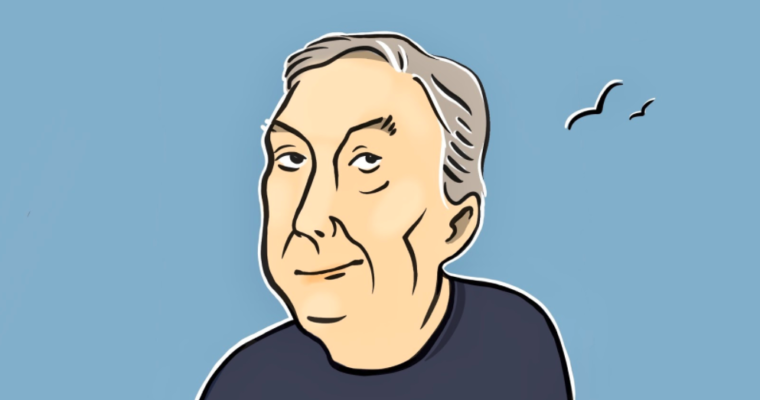Rob Johnson, President of the Institute for New Economic Thinking, is not your average economist. He’s got heart and soul, or if you’ll have it, the blues! With his deep connection to the arts and humanities, Rob leads the new economic thinking not just with a sharp mind, but also with sensibility. His mentorship to the YSI community is invaluable.
Over the next few weeks, we’re thrilled to bring you Rob’s life story, with all its twists and turns, surprising anecdotes, and life lessons learned. If you’re a young scholar looking to navigate the choppy waters of economic thinking, you’re in for a treat.
Below is a little glimpse, citing some of the books that made Rob Rob, and foreshadowing the themes that this series will uncover. Enjoy this appetizer, and stay tuned for the main course!
Prologue – The books behind Rob Johnson
“I grew up in the midst of social turmoil in Detroit; I was ten years old at the time of the Vietnam War and the 1967 race riots. Years later, when I read The Origins of the Urban Crisis, I realized what an impact that had had. It made me lose my innocence. I was also left mesmerized by MLK, who gave a speech at what would become my high school just 3 weeks before he got assassinated. I did not understand it then, but I could tell it was important. Later on, I studied his writing and speeches in depth, reading them collected in A Testament of Hope.
Another major element in my youth was with sailing–I was obsessed with it and it propelled my learning. At 13, I took The American Practical Navigator out of the library, learning geometry and trigonometry just to become a navigator. I also needed to understand meteorology, so I read Watts’ Wind and Sailing Boats. A couple years later I had moved on to yacht design which meant calculus and Sailing Theory and Practice. I did race and after race, and very successfully.
All of this curiosity and striving were great fuel for a learning mindset. I also devoured the history of the great explorers, like Shackleton and racing geniuses like Elvstrom. I loved St Exupery’s Wind Sand and Stars, which many consider to be the best adventure story ever written. Fiction, too, inspired me: Moby Dick and The Odyssey, for example. All those stories taught me that with preparation and study one could garner the courage to reach further; to get more from life.
This mix of influences meant that I quickly developed a combination of curiosity and ambition, but also skepticism, and humility. I knew that preparation and skill goes a long way, but you can never really fully comprehend the forces you are up against. So when I first saw an equilibrium graph during my college economics class, I knew it was off. Kindleberger’s notion of radical uncertainty in Manias, Panics, and Crashes would come to resonate much more, and later lead me to feel at home working with George Soros.
My path has always been guided by music, too, I even had my own record label for some time. Music always felt more like truth than discourse. It offers a window into the deeper regions of the mind; the essential, and the unconscious. The Spirituals and the Blues is a profound book on music, and its links to social change. While spirituals are about the afterlife, the author, James Cone notes, the blues is about defiance in the here and now.
Cone has written much more, including The Cross and the Lynching Tree, which I think is one of the greatest books written in social science. It shows how people really behave under stress, and why you cannot trust experts to come to the rescue. Because at times of societal malfunctioning, they hide from controversy to preserve their reputation. That’s when it’s time for the fresh vision of young people in conjunction with those who suffer injustice. Together they can see what needs to happen, and make the unfeasible feasible. Nothing is more relevant today.”
If this leaves you with a lot of questions, stay tuned! Over the next few weeks, we’ll start at the beginning and delve into the details. Subscribe to receive the articles directly to your inbox.
If you’re excited for this series, you’ll also enjoy Rob’s podcast, Economics and Beyond, available wherever you get your podcasts.
